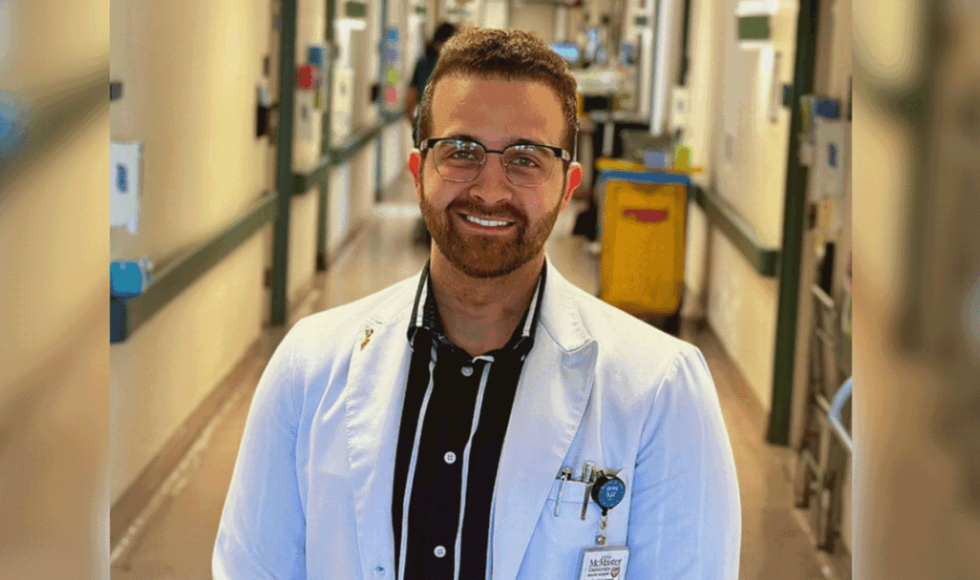From McMaster to the football pitch

Mohammed Shobain works with the likes of Cristiano Ronaldo as a doctor for Al-Nassr Football Club. He credits a fellowship with McMaster University with helping him get to the sidelines of elite soccer.
When Mohammed Shobain joined McMaster University for a fellowship in sports medicine in 2023, he never imagined it would help catapult him into the world of elite football.
Now, Shobain has returned back home to Saudi Arabia for a role as staff doctor with Al-Nassr Football Club where he works with some of the biggest names in football, including decorated Portuguese footballer Cristiano Ronaldo. His journey to the sidelines of international football is one that he says wouldn’t have been possible if not for his time at McMaster.
“The fellowship provided me with invaluable skills, from ultrasound techniques to managing a high volume of patients,” Shobain says. “At the beginning, it was tough, but now I feel like it’s a piece of cake. I can do it in five minutes, and I wouldn’t have that if I wasn’t at the university.”
Injury spurs career curiosity
Shobain was once a professional athlete himself, getting his start not on the pitch, but on the court.
“I used to play with the national basketball team in Saudi Arabia. This is where my athlete career started and then I had my first ACL injury when I was 15 years old and then another meniscus injury.”
What followed was an eye-opening experience through rehabilitation and an introduction to the kinds of recovery plans he now prescribes for his patients.
“Those insights enlightened my vision into being a sports doctor,” he explains.
‘McMaster helped me so much’
Shobain joined McMaster in 2023 for his fellowship in physical medicine and rehabilitation, working alongside Agnes Chmiel, associate professor with the Department of Medicine and director of the spinal cord injury program.
He learned about the fellowship through a previous McMaster fellow. However, he says it was the university’s reputation as a global leader in musculoskeletal rehabilitation that drew his attention.
“It was a privilege to work with Dr. Shobain who contributed to our education mission tremendously. He was enthusiastic about teaching students and residents in the area of interventional physiatry and his own skill set advanced tremendously over his year here at McMaster,” Chmeil says.
“He helped to develop many aspects of training which will benefit future learners. We wish him all the best.”
Over the course of a year, Shobain not only honed his technical skills but also improved his communication abilities.
“I know McMaster helped me so much in terms of how to communicate very well with athletes. I had the privilege to work with the Hamilton Tiger-Cats, which gave me huge experience in working with athletes.”
He describes the experience as enriching, adding that he learned the importance of combining evidence-based medicine with a holistic, patient-centred approach in managing musculoskeletal conditions.
“The mentorship I received at McMaster reinforced the value of lifelong learning and the impact of thoughtful, precise interventional techniques,” he says.
“I definitely miss the collaborative learning environment at McMaster, where there was a real sense of community among fellows, residents, and faculty. I also miss the opportunity to engage in academic discussions and the chance to contribute to clinical research in a supportive and innovative setting.”
View this post on Instagram


